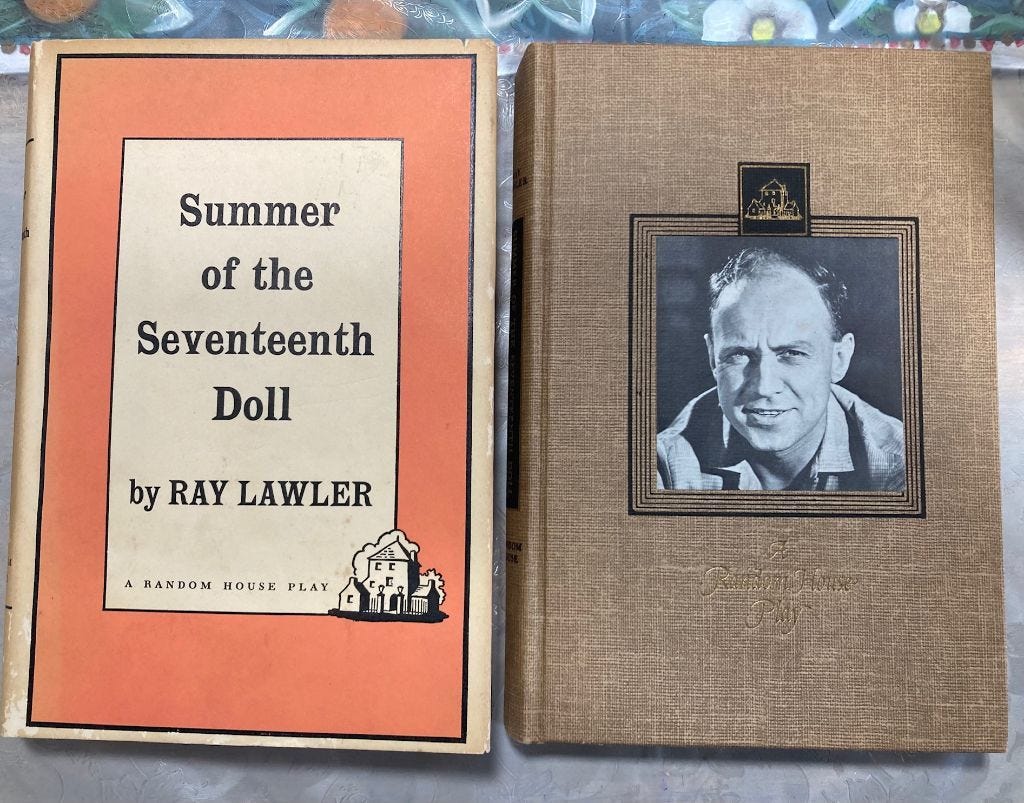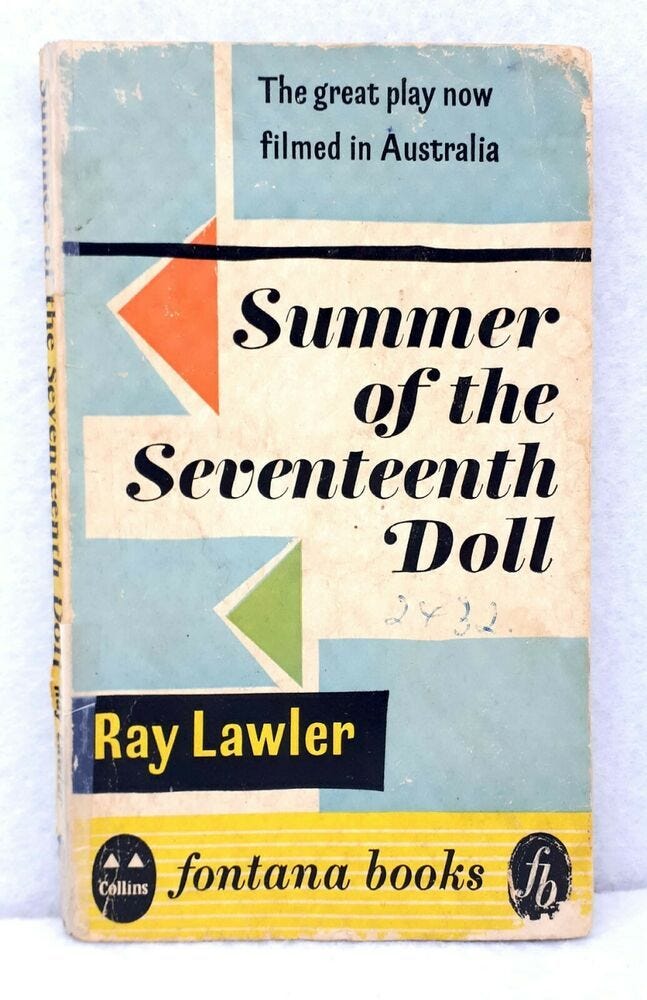welcome
Welcome to the latest issue of Shipping News, my occasional newsletter of things I find interesting and hope you do too. Feedback is always welcome.
NOTE: this newsletter may or may not contain any actual shipping news!
film: perfect days
Not much happens in Perfect Days, the latest film from Wim Wenders, and now available to rent, but that’s what’s great about it. Set in Tokyo, the film centres around a Japanese toilet cleaner with a surprisingly good collection of vintage cassettes and a zen acceptance of the beauty in the very ordinary. It is slow, meditative and modestly beautiful. And, it’s got a great soundtrack. Rent if you fancy a film where no-one gets shot or blown up.
There’s an extended review at The Criterion HERE
literature: Remembering Ray Lawler
The Australian playwright Ray Lawler died on the 28th of July aged 103. He wrote Summer of the Seventeenth Doll, often considered a landmark in Australian theatre through its depiction of Australian life and language.
What he did was, along with plays like Alan Seymour’s One Day of the Year (1960) and The Shifting Heart (1957) by Richard Beynon, and novels like Voss (1957) by Patrick White, My Brother Jack (1964) by George Johnston and Wake in Fright (1961) by Kenneth Cook, was to raise an understanding that there was an Australia that could/should be explored in literature. The ABC obituary described him as a ‘trailblazing playwright’ and Limelight noted: ‘its portrayal of authentic Australian characters and settings was revolutionary, marking a departure from the predominantly British-influenced theatre of that time.’
I once met a very nice Englishman who politely told everyone at a Literature conference one day that, ‘of course there is no such as Australian literature’. I disagreed, but he might have been half right, especially before the important plays, poetry and novels that emerged from around the mid 1950s onwards. Plays like Lawler’s confirmed the notion that there was something worth writing about going on right here and it should be described in a language particular to this place.
I saw the ‘Doll’ when it was revived in 2012 and it felt a bit dated, especially the conversational vernacular which sounded like my grandmother talking. Which, I get now, was the point. This was about describing a real Australia as it was now/then.
Lawler was instrumental in building Australian theatre, and in the formation of the Melbourne Theatre Company, particularly.
localism: fifteen young men
Many Mornington Peninsula residents have heard of the infamous drowning accident that occurred in Port Phillip Bay in 1892 or seen the memorial ‘FIFTEEN YOUNG MEN’, but it’s easy to walk past the memorial at the end of Main Street without a second glance or a thought about what a tragedy that must have felt at the time.
The accident occurred on the night of Saturday 21 May 1982 when a group of Mornington footballers were returning from Mordialloc by boat after a football game. The boat never made it home and was found partially submerged next morning off Pelican Point, Mount Eliza. There were no survivors. One body was found on board, three others in the bay in the following weeks. No others were ever found. It is thought that the boat capsized in a sudden squall. In his book about the tragedy, Fifteen Young Men, ABC sports presenter Paul Kennedy calls it "among the worst sporting team accidents the world has witnessed, although somehow it has slipped from Australia's consciousness".
Try to contemplate what the deaths of fifteen young people would do to a community now, and then imagine that on a much smaller community at the time. The Reverend Caldwell lost three sons, Joseph Grover lost a son and a brother and the boatman Charles Hooper and his son were also drowned. The tragedy rocked the entire community for years.
There’s an ABC article about the tragedy HERE and another on the Mornington Football Club website HERE, a piece on Mornington vs Mordialloc HERE and a reflective piece from the AGE HERE
Next time you visit this spot, across the road from the park, take a minute to reflect.
tek: omnivore
Read-it-later apps come and go, and come in and out of fashion. The basic idea of saving something you find on the web to read (save/and/or annotate) later goes back all the way to apps like InstaPaper and Pocket, both of which I’ve used over the years. In fact, I just logged in to my InstaPaper account and found some articles I saved to read eleven years ago! I must get around to reading them!
Read it later apps allow you to save and archive articles and web pages to read later, and generally archive or even download a the full text of the piece, not just the link, and in an easy to read format, often stripped of ads. Some will download an offline copy that you’ve got even if the original web page changes of goes away. You generally get a ‘share’ extension you can add to any page you’re reading on your Mac or phone and you SEND the article to your read it later app of choice.
My current favourite is Omnivore. Omnivore is a free, open-source app that allows you to save full text articles and have those saves sync across your devices. You can highlight and annotate, label and organise and archive to your heart’s content. Great for putting together a list of long-reads for when you’ve got a long days’ wait in an airport sometime (say Athens). And, I found out this week, it’s got an effective audio feature that will read the article to you in a pretty realistic sounding voice.
They say:
Omnivore is the free, open source, read it later app for serious readers.
Distraction free. Privacy focused. Open source. Designed for knowledge workers and lifelong learners.
Save articles, newsletters, and documents and read them later — focused and distraction free. Add notes and highlights. Organize your reading list the way you want and sync it across all your devices.










Should I name the "very nice Englishman"? I remember that day very well! New (then!) VCE planning day, at Mt Eliza Secondary!